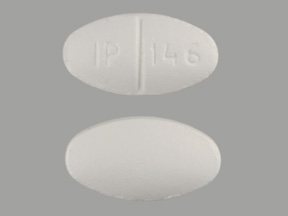
Hydrocodone-ibuprofen Coupons & Savings Card – Discount Prices from $154.02
Hydrocodone/ibuprofen is a short-term medication prescribed for relieving moderate to severe pain, particularly when non-opioid pain relievers are insufficient. This combination drug consists of hydrocodone, an opioid that modifies pain perception in the brain, and ibuprofen, a nonsteroidal anti-inflammatory drug (NSAID) that alleviates pain and reduces fever. It is typically used for less than 10 days and is not suitable for long-term conditions like arthritis.
While the brand name Vicoprofen is no longer available, the generic version remains on the market. Users may experience side effects such as headache, drowsiness, and constipation. Serious risks include slowed breathing, potential for misuse and dependency, and stomach bleeding. It is crucial to consult healthcare professionals to ensure this medication is appropriate for you.
Our coupons are free to use. Before paying, show the pharmacist your Hydrocodone-ibuprofen savings card to get your free discount. Use our filters below to edit the prescription box to match your needs. The Hydrocodone-ibuprofen prices will update based on your prescription needs. Above our Hydrocodone-ibuprofen coupons, you can change your location to see pharmacy prices and costs in other areas. We're here to help you buy Hydrocodone-ibuprofen at the lowest price with our prescription discount card.
My prescription
Edit
5-200MG, Hydrocodone-ibuprofen (120 Tablets)
Select pharmacy

CVS
$181.04
COUPON PRICE
Walgreens
$154.02
COUPON PRICE
Albertsons
$328.51
COUPON PRICE
Walmart
$377.67
COUPON PRICEHydrocodone-ibuprofen savings card
Show this card to your pharmacist
Walgreens
$154.02
BIN
ID
PCN
GRP
015995
LHKPY246311
GDC
DR33
Powered by
Hydrocodone/ibuprofen is a short-term medication prescribed for relieving moderate to severe pain, particularly when non-opioid pain relievers are insufficient. This combination drug consists of hydrocodone, an opioid that modifies pain perception in the brain, and ibuprofen, a nonsteroidal anti-inflammatory drug (NSAID) that alleviates pain and reduces fever. It is typically used for less than 10 days and is not suitable for long-term conditions like arthritis.
While the brand name Vicoprofen is no longer available, the generic version remains on the market. Users may experience side effects such as headache, drowsiness, and constipation. Serious risks include slowed breathing, potential for misuse and dependency, and stomach bleeding. It is crucial to consult healthcare professionals to ensure this medication is appropriate for you.
Our coupons are free to use. Before paying, show the pharmacist your Hydrocodone-ibuprofen savings card to get your free discount. Use our filters below to edit the prescription box to match your needs. The Hydrocodone-ibuprofen prices will update based on your prescription needs. Above our Hydrocodone-ibuprofen coupons, you can change your location to see pharmacy prices and costs in other areas. We're here to help you buy Hydrocodone-ibuprofen at the lowest price with our prescription discount card.
More prescriptions for pain
coupons from$2448.70Save 18%
coupons from$24.77Save 75%
coupons from$7.93Save 67%
coupons from$350.57Save 73%
coupons from$16.18Save 82%
coupons from$5.93Save 76%
coupons from$9.24Save 70%
coupons from$83.57Save 72%
More prescriptions for pain
Lidosol Save 18%coupons from $2448.70
Ms Contin Save 75%coupons from $24.77
Naproxen Sodium Save 67%coupons from $7.93
Lidocaine Hcl Monohydrate Save 73%coupons from $350.57
Methyl Salicylate Save 82%coupons from $16.18
Aleve Pm Save 76%coupons from $5.93
Ft Ibuprofen Minis Save 70%coupons from $9.24
Naproxen Dr Save 72%coupons from $83.57
Hydrocodone-ibuprofen dosage forms
Use our Hydrocodone-ibuprofen 5-200MG coupon with prices from $186.52 for 120 Tablets. You can also use our Hydrocodone-ibuprofen 5-200MG coupon with prices from $29.02 for 12 Tablets. We have a Hydrocodone-ibuprofen 5-200MG coupon with prices from $60.35 for 30 Tablets. You can use our Hydrocodone-ibuprofen 5-200MG coupon with prices from $102.41 for 60 Tablets.
Dosage Quantity Price from Per unit 5-200MG 120 Tablets $186.52 $1.55 5-200MG 12 Tablets $29.02 $2.42 5-200MG 30 Tablets $60.35 $2.01 5-200MG 60 Tablets $102.41 $1.71 5-200MG 90 Tablets $144.46 $1.60 7.5-200MG 60 Tablets $36.90 $0.61 7.5-200MG 90 Tablets $50.85 $0.56 7.5-200MG 120 Tablets $64.80 $0.54 7.5-200MG 150 Tablets $78.75 $0.53 7.5-200MG 180 Tablets $101.70 $0.56
| Dosage | Quantity | Price from | Per unit |
|---|---|---|---|
| 5-200MG | 120 Tablets | $186.52 | $1.55 |
| 5-200MG | 12 Tablets | $29.02 | $2.42 |
| 5-200MG | 30 Tablets | $60.35 | $2.01 |
| 5-200MG | 60 Tablets | $102.41 | $1.71 |
| 5-200MG | 90 Tablets | $144.46 | $1.60 |
| 7.5-200MG | 60 Tablets | $36.90 | $0.61 |
| 7.5-200MG | 90 Tablets | $50.85 | $0.56 |
| 7.5-200MG | 120 Tablets | $64.80 | $0.54 |
| 7.5-200MG | 150 Tablets | $78.75 | $0.53 |
| 7.5-200MG | 180 Tablets | $101.70 | $0.56 |
| 10-200MG | 60 Tablets | $142.09 | $2.37 |
| 10-200MG | 90 Tablets | $203.98 | $2.27 |
| 10-200MG | 120 Tablets | $265.87 | $2.22 |
| 10-200MG | 150 Tablets | $327.77 | $2.19 |
| 10-200MG | 180 Tablets | $389.66 | $2.17 |
